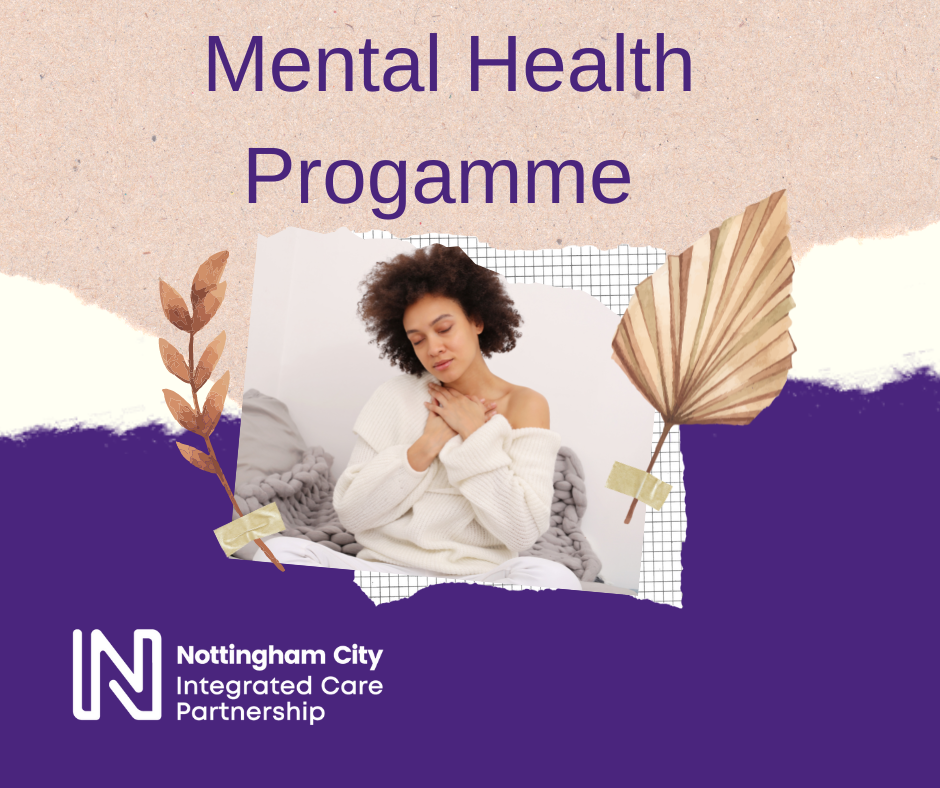
Mental Health programme Q&A
Qu. Who are you and what is your role in the ICP?
My name is Ciara Stuart and I lead the ICP Mental Health Programme, which aims to bring partners together to improve outcomes for mental health in our city. I am one of the Deputy Locality Directors in the City Locality Team which is part of the Clinical Commissioning Group (CCG). I am delighted to once again be working on this agenda – as for several years I worked in mental health commissioning roles. Working as part of the ICP is very different from my previous roles as it brings opportunities to do things differently in partnership with ICP organisations and most importantly with our citizens. The Programme only commenced this summer, but I am excited about what we can achieve in the coming months.
Qu. Why is the programme so important?
Good mental health is an essential aspect of overall good health for our population. The pandemic has impacted all of us, but the effects have not been the same for everyone. Those whose mental health has been particularly impacted by the pandemic include, the unemployed, those with existing long-term physical or mental health conditions, women, people from minority ethnic and LGBQT+ communities, and older people who are isolated or digitally excluded. We know most of the determinants of mental health are social, not medical. So that calls for responses at all levels, system and society, community and neighbourhood, individual and household. As an ICP we are in a unique position to come together to do things differently; join up services, focus on prevention, and increase support in the community rather than traditional health settings. And, we will with our communities to change things that will make a difference to them.
Qu. What is it like leading this programme of work?
The programme has been running since the summer and at times it can feel overwhelming because of the size of the agenda. However, the enthusiasm and support from partner organisations has been encouraging. The meetings so far have tried to achieve three aims, firstly, getting stuck into actions where we can make some rapid improvements. An example of this is a project led by Alex Julian to engage with our South Asian Communities to understand why they are less likely than other ethnicities to access Primary Care Psychological Therapies. We hope the information will help us change pathways and services to make them more accessible. Secondly, partners are sharing information about their areas of mental health transformation. Shared information and knowledge will help us make connections and work more closely together to ensure mental health is everyone’s business. Finally, we are thinking longer-term; in partnership with the Collaborative for Better Mental Health we are developing the City response to the Prevention Agreement for Better Mental Health.
Qu. How do you promote the programme to citizens and to your colleagues?
We are fortunate that we are working in partnership with the recently relaunched Nottingham City Collaborative for Better Mental Health. The Collaborative is a group of over 100 professionals and 35 people with lived / carers experience who want to come together to help us identify opportunities for greater integration, areas of inequalities and help connect the ICP Programme to our communities. In December, Collaborative members have been invited to attend a series of workshops focused around co-producing an action plan to support the signing of the Prevention Agreement for Better Mental Health; this will guide much of our work going forward. If you would like to join the Collaborative please contact Marie Cann-Livingstone for further information marie.cann-livingstone@nottinghamcity.gov.uk
Qu. What positive outcomes have you seen and where can we improve?
Although the programme is in its infancy, we are already seeing the benefits of bringing people together to share information and ideas. A task and finish group is in the process of being formed to look at options for sharing information about mental health across partners. We also have a project to develop mental health assets to better support social prescribing. At each meeting we make new links and partners are coming together to support each other; during the last meeting Jules Seblin (NCVS) offered to support the identification of further City venues for crisis sanctuaries. We are at the beginning of the journey, but I am excited about what can be achieved.